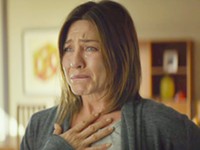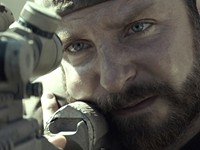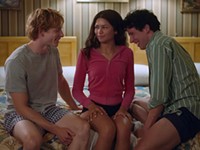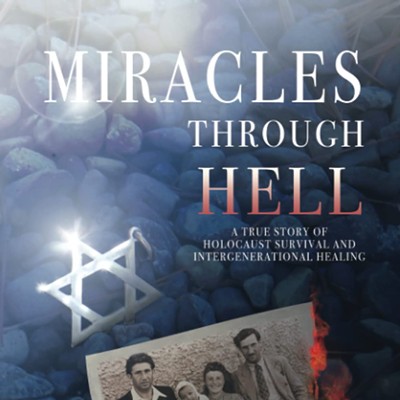[
{
"name": "500x250 Ad",
"insertPoint": "5",
"component": "15667920",
"parentWrapperClass": "",
"requiredCountToDisplay": "1"
}
]
The usual action film of our time, familiar to any moviegoer, invariably features heavy doses of physical violence, gunfights, car chases (and crashes), advanced technology, and enough weapons of mass destruction to provoke the posturing of George W. Bush. As its title indicates, however, Ladder 49, a very different sort of action flick, celebrates the heroism of the everyday in the business of fire fighting.
The movie chronicles the brave actions of ordinary, working-class people serving society in an important, dangerous, but hardly exotic or romantic activity. Its appearance also represents yet another result of the tragedy of 9/11, which reminded the nation of the extraordinary demands of the profession.
The picture begins in the middle of things, with the sort of spectacular blaze in a tall building that the television stations love to use to open the news shows, and which they invariably describe as "raging out of control." After rescuing a panicky victim, a fireman falls through several floors to a basement, where he calls for help on his radio and, while his comrades attempt to locate him, wanders in and out of consciousness. In the tradition of such moments in cinema, the man's life flashes before his eyes, which, with occasional interruptions in the present, constitutes the major narrative of the film.
Joaquin Phoenix plays Jack Morrison, the trapped fireman, and Ladder 49 essentially recounts the events that brought him to his perilous situation. The long flashback begins with his first day at a Baltimore firehouse, Engine 33, and his introduction to the realities of his profession.
As a rookie, he must undergo a process of initiation, performing the most menial chores around the station and enduring the jokes and pranks of his new colleagues, who demonstrate, with such gags as setting him up to confess to a fake priest and stashing a goose in his locker, that a thin line separates the firehouse from Animal House.
Aside from the depiction of everyday life around the firehouse, the picture naturally shows the men --- despite affirmative action, no female firefighters appear --- responding to a number of alarms, dealing with a variety of fires, rescuing civilians, and risking injury and death. The simple business of a dozen or so firefighters interrupting their normal activities --- eating, sleeping, reading, playing pool, and so on --- and sliding down poles, donning all their cumbersome gear, and leaping on the huge red trucks to race through the city streets, provides the sort of excitement usually associated with the usual action blockbusters. The actual process of dealing with the heat, smoke, darkness, and confusion of a big fire also enlivens the narrative, hinting somehow that, whatever the dangers, the firefighters actually love the challenges and hazards of the job.
Along with his progress in the profession, the flashbacks also focus on the personal side of Jack Morrison's life. He meets, woos, and eventually marries a young woman (Jacinda Barrett), which allows the filmmakers to introduce a sometimes exaggerated emotional element that gradually seeps into most of the other areas of the movie. The fact of the marriage and the birth of his two children reinforce for Jack and his wife the possibility of loss --- the prospect of his death haunts the family and darkens even the lightest moments of their relationship.
The combination of the professional and the domestic lives of the firemen, with an attendant exaggeration of emotion, somehow makes Ladder 49 both a chick flick and a guy flick. The concentration on the vulnerability of Jack and his family, their melancholy acknowledgment of the danger he faces, occasionally contrasts with the boisterous, often juvenile humor of the firehouse, where even the captain admits that he functions as a babysitter.
Aside from the thrill of the fires themselves, most of the best and perhaps the most authentic moments in the movie consist of the raucous celebrations of masculine comradeship in the firehouse and their favorite bar, where the firemen show they can handle other liquids besides water.
Partly in keeping with the ethnic and working-class background of the profession itself, the picture rivals the gangster film in its depiction of Catholic ceremony --- weddings, baptisms, funerals, even the celebration of St. Patrick's Day (apparently, as in New York, Baltimore's firemen are heavily Irish). As a reasonably accurate examination of the life of the firefighters and certainly as a tribute to their courage and service, Ladder 49 succeeds admirably.
One hundred years from now, students of the cinema may examine it also in terms of its special temporal and spatial context, its historical position, its place in American culture. The movie in a sense reflects yet another consequence of an event no one had ever experienced and a sacrifice no one could have ever imagined.
Ladder 49 (PG-13), starring Joaquin Phoenix, John Travolta, Morris Chestnut, Robert Patrick, Jay Hernandez, Tony Conigen, Billy Burke, Balthazar Getty, Jacinda Barrett, Tim Griner, Kevin Chapman; written by Lewis Colick; directed by Jay Russell. Cinemark Tinseltown; Loews Webster; Pittsford Plaza Cinema; Regal Culver Ridge; Regal Eastview; Regal Greece Ridge; Regal Henrietta.
Latest in Movie Reviews
More by George Grella
-

Film Review: "Cake"
Jan 26, 2015 -

Film Review: "American Sniper"
Jan 19, 2015 -

Film Review: "Inherent Vice"
Jan 12, 2015 - More »






